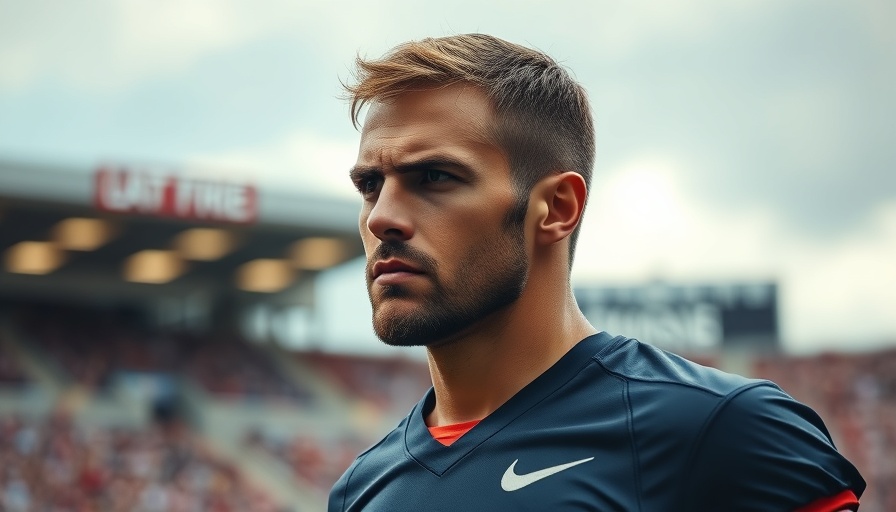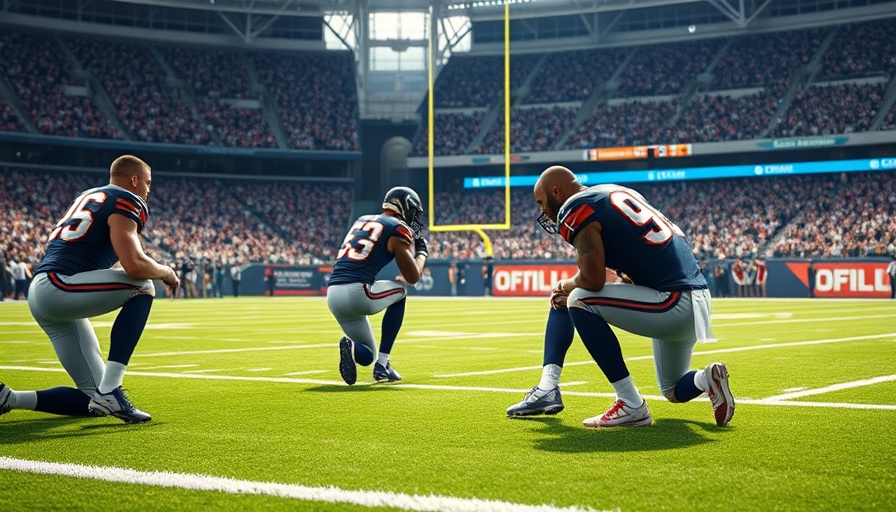
Understanding the Emotional Journey of Retirement from Football
Former NFL star Darren Waller’s recent revelation about his departure from football encapsulates the complex emotional landscape faced by athletes transitioning out of their professional careers. In a sport where physical resilience is often lauded, the mental and emotional implications can be overlooked. Waller’s story serves as a reminder of the human side behind the athlete’s image, navigating identity, purpose, and the inevitable changes in life direction.
The Moment of Realization: A Turning Point
Waller disclosed that it was during an ordinary moment he realized he was 'definitely done' playing football. This moment came not during a game but in a reflective state, where the weight of injuries and the grind of the sport collided with personal aspirations. This sudden clarity points to a crucial turning point, suggesting that sometimes the path forward is illuminated not by grand decisions but by quiet realizations about one’s well-being.
Facing the Reality of Change
For many athletes, the transition from professional sports can be perplexing. The sudden cessation of a career largely defined by intense public scrutiny and personal dedication forces a reevaluation of self-worth. According to a study by the NCAA, nearly 30% of athletes experience a decline in mental health after retiring. Waller’s announcement highlights the importance of supporting players in their shifts towards new life chapters.
Waller’s Legacy and Influence
As a physically talented player, Waller not only entertained fans but also contributed to vital conversations around mental health and addiction recovery in sports. By sharing his story, he paves the way for discussions on how retired athletes can find purpose beyond gridiron fame, altering societal perceptions surrounding their identities.
Inspiration for Future Generations
Waller’s experience resonates profoundly with younger athletes who aspire to reach the NFL. His honesty in acknowledging vulnerabilities encourages a new generation to understand that life after sports is as significant as the sport itself. As they chase their dreams, they should simultaneously cultivate interests outside of athletics.
The Broader Societal Impact of Athletes' Stories
Retirement narratives like Waller's challenge the involving cultural paradigm surrounding sports heroes. These stories reveal the hidden struggles and triumphs athletes face, reminding fans that athletes are multifaceted. They are not just entertainers, but individuals navigating complex journeys that intersect with mental health, societal expectations, and innovation in life after sports.
Moving Forward: How to Make the Transition Smooth
For athletes looking to transition into life after football, several steps can ease this often turbulent journey. Building a robust support network, engaging in community service, and exploring further educational avenues can provide a sense of purpose and connection to one’s identity post-career. As Waller’s journey shows, embracing change can lead to new opportunities and empower others along the way.
As we reflect on Darren Waller’s career and his brave admission about stepping away from football, it’s a call to recognize the intricacies of athlete retirements. Sports fans, let’s foster a culture that not only celebrates the games and feats on the field but also advocates for the mental well-being and diverse paths our heroes pursue when the final whistle is blown.
 Add Row
Add Row  Add
Add 




Write A Comment